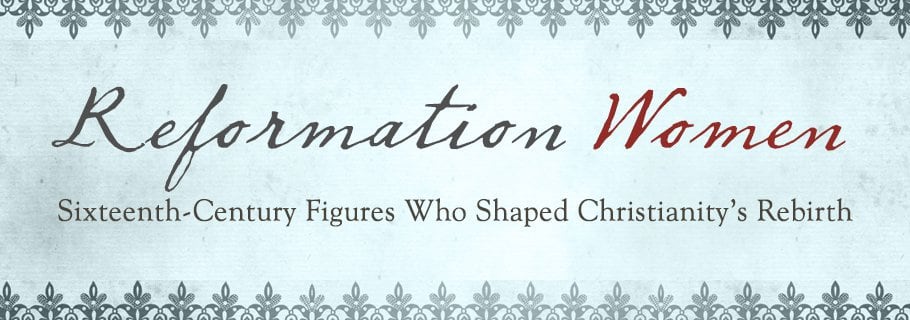This sponsored post was provided by Reformation Heritage Books.
We don’t tend to think of the 16th century as a time when people had to sort out female identity issues. But Roman Catholicism had very strong ideas about women and what they should be doing. For example, lactating nuns and celibate wives were both considered holy. That’s a problem! And because Roman Catholic tradition fell apart under a scriptural examination, the Protestant church had to deal with the fallout. Runaway nuns and priest’s wives revealed real issues of gender and identity confronting early Protestantism. The church turned to Scripture for guidance.
What did it see there? It saw Miriam, the prophetess leading the Israelite women in song. It saw Jael, the stay-at-home mom assassinating an enemy general; Abigail, the woman in a difficult marriage using her wealth to provide for David; Dorcas, the older woman devoting herself to care for the poor; Pricilla, the well-taught wife along with her husband helping Paul with his teaching ministry. So clearly, biblical womanhood was not limited to convent walls or Roman Catholic nurseries. Nor was it limited to reading your Bible at home and raising Protestant babies. Biblical womanhood was—and is—using your gifts to serve the church in the ways in which you can facilitate its growth and health according to biblical patterns.
During the Reformation, women used their gifts in three general areas: in the home, in government, and in publishing. Protestant wives facilitated their husbands’ gospel work and raised children in the fear and admonition of the Lord. Protestant queens and princesses pushed for reform and advocated for the persecuted. And Protestant authors wrote in defense of biblical truth.
These women used their gifts for gospel change in their own sphere, whatever ways possible.
These women used their gifts for gospel change in their own sphere, whatever ways possible. Submission did not equal passivity, but creative, active, and sacrificial service that had the praise of their families, the recognition of the community, and the blessing of the Lord.
Public roles were not the goals of these women. They were not responding to a call for more women in government and public theological dialogue and publishing. Public roles outside of the home are not things that Reformation women fought for: they came to fill them because they were excelling in the home and had the position, or thoughtfulness, theological background, and energy to take on additional work when there was a need or an opportunity.
 And public roles were not filled at the cost of private roles—the primary callings of caring for family. Husband and children weren’t sacrificed for career or “personal fulfillment.” And there was contentment when God limited these women to private, domestic roles. But there was also great fruitfulness and freedom. Reformation era believers could answer the issues of bad Catholic teaching on gender roles not because they were reacting to it, but because they lived out the principles that they found in Scripture.
And public roles were not filled at the cost of private roles—the primary callings of caring for family. Husband and children weren’t sacrificed for career or “personal fulfillment.” And there was contentment when God limited these women to private, domestic roles. But there was also great fruitfulness and freedom. Reformation era believers could answer the issues of bad Catholic teaching on gender roles not because they were reacting to it, but because they lived out the principles that they found in Scripture.
The big question regarding gender roles in the church is not, “How much are women allowed to do?” but, “How can women best use their gifts to serve Jesus?” Jesus gives us very clear guidelines in His Word.
And Reformation women give us solid examples in this area as we try and learn what womanhood can actually be, based not on our feelings or desires or tradition, but on unchanging biblical principles and priorities in a world that is very confused on this subject.
Learn more with Reformation Women.










